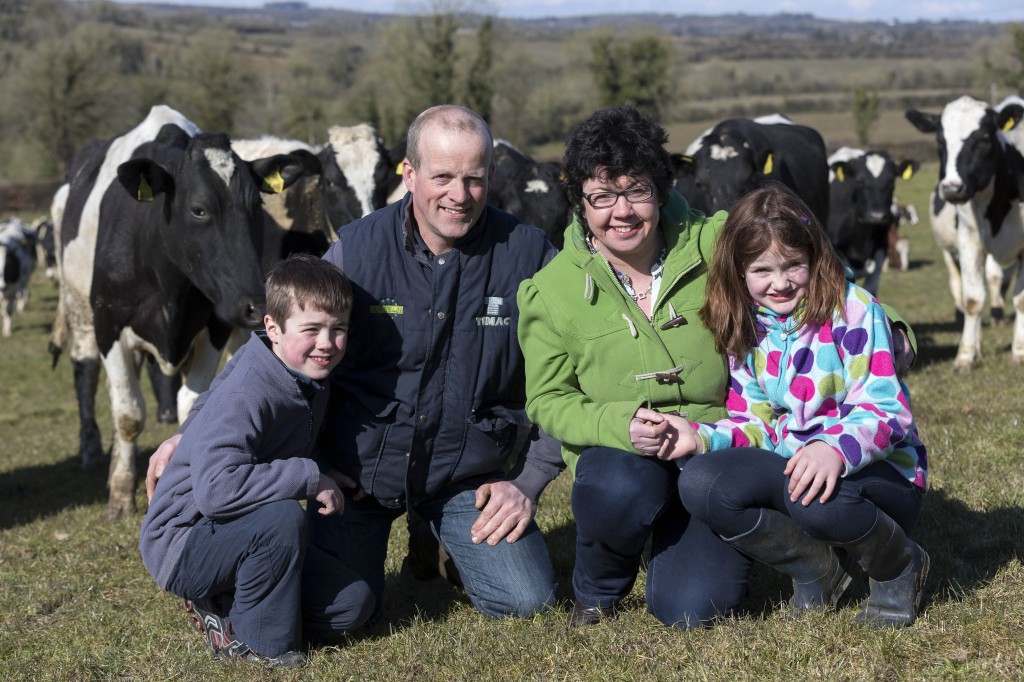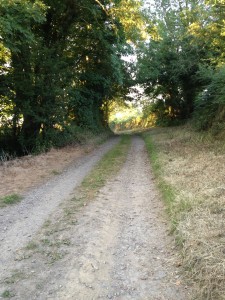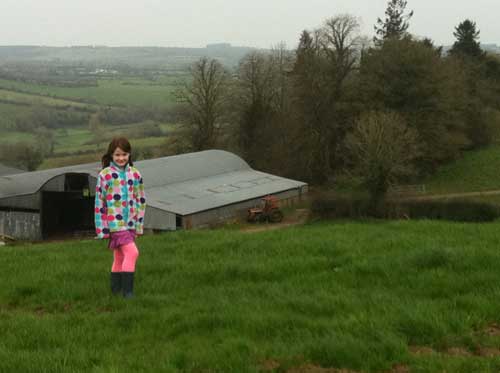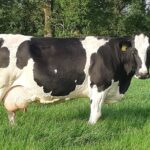This is the EU Year of the Family Farm. I’ve felt for some time though that there is quite a bit of confusion over what constitutes a family farm and judging by the Teagasc conference I was at last week, I’m not the only one. What do you think it is?
What is a family farm?
To me, a family farm is one in which the farm is able to sustain and support the living expenses of the family if both are working on the farm. ?By working, it may mean that one person is working full time out on the farm and the other is looking after the kids, preparing meals, standing in gaps, doing the paperwork, maybe diversifying the business (this can depend on the age of the kids too) etc. ?Not all members of the family may be working on the farm but some will. Some family farms will have husband and wife working together on the farm, some will have one spouse working off-farm, but the farm should be able to pay its own bills and loans as well as provide an income for one person if not to sustain the whole family – that’s my opinion anyway. However, if a farm is too small or can’t do that for another reason, if it isn’t viable, what should be done? Maybe that’s another issue entirely!
When at an IFA meeting a while ago, a speaker explained why family farming was so important, part of the reason seemed to be that if a farmer was employing workers and had a bad financial year, the cost of the wages could run the farm into the ground. Whereas on a family farm where spouse and children worked or helped out, a bad financial year wouldn’t necessarily run the risk of the farm going bankrupt but the family could tighten their belts and forego a family holiday. Needless to say, I wasn’t impressed. We try to get away most years in January, sometimes abroad, sometimes just to a hotel in Ireland for 4 or 5 days. Working on a farm isn’t like working in a job. To get time off, you have to get away from the farm. It’s not like taking time off work and just resting at home for a few days because it’s not possible for farmers to lounge around while there is work to be done up the yard. We didn’t get away this year because of the ‘bull beef situation‘ and both of us felt it during the calving. It wasn’t just because of missing a physical rest, part of it is also about recharging the batteries and renewing your enthusiasm for a new season. The kids are only kids for so long too, it’s important to take time off with them. Families need family time off.
At the Teagasc conference, there were a few different suggestions as to what a family farm in Ireland encapsulates. ?One might be forgiven for thinking that most family farms are enjoying their last generation as it either seemed the case that a farmer doesn’t have any children to inherit, is reluctant to let a daughter inherit or the children don’t want to farm. Now, that is an exaggeration but those scenarios are very very common. The bachelor farmer was a common sight from 1950s-1980s and if you’ve read my book or any of JB Keane’s works, you will know that the reason for bachelorhood was often that the son was in his 40s or 50s by the time his father died and he could inherit. His mother was often much younger than her husband and as women lived longer than men, she probably had another 30 years in her, she didn’t particularly want to see a young daughter-in-law coming in and assuming power and in any case, many of the marriageable women had either left the parish, were married already or didn’t want to marry a man in his late 40s with a mother-in-law and a draughty farmhouse. As I mentioned in my last post about the conference, some farmers died leaving requirements in their wills such as the inheriting son had to bring in a minimum dowry with his spouse.
Sally Shortall (QUB) gave the example of a young farming daughter, in her late teens, who would love to farm and is working at relief milking and helping on her father’s farm. However, even though her brothers aren’t interested in the farm, she knows she won’t inherit. Ummm, it’s 2014, her parents may not be much older than Brian and I and they don’t want a daughter to inherit. ?I think it is terrible that a girl thinks she is inferior to her brothers – reminds me of Maggie in George Eliot’s The Mill on the Floss when Maggie wanted to go to school but wasn’t allowed even though she was much more intelligent than her older brother. Another researcher made the point that it’s not just farming parents that have that attitude but it is our society. As another pointed out, many farmers tend to be risk averse, as they worry about what the neighbours will say if they take a risk and it doesn’t work out – that obviously also applies to letting daughters farm. The reason is more likely to be the strong tie that farmers have to their land, tied as if with an umbilical cord and wanting it to continue on in the same family. That the farm stays in the same name is important to many too so that’s why it tends to go down the male line. What is happening though is that sons (and daughters) don’t necessarily want to farm.
As pointed out by Sally Shortall (QUB), although the income of a family farm was often not necessarily more than manual labourers, they held more status and their children usually went to university. In the past, women’s work on the farms was tough and largely hidden. The male farmer was in the public sphere, going to the mart and selling crops while she milked cows, fed calves, kept pigs and poultry. The marriage bar was lifted in 1973 ( married women could work) which meant women could enter the public sphere. ? It is now the case that many farms are too small for some enterprises to sustain the outgoings of the farm and a family income so an off-farm part-time or full-time income is also required. ?Many professional women are finding that their standard of living is far below that of their city or town peers, that their income is paying for the entire household or even for some farm loans. Now is that the fault of the market prices that payment for food is so low, is it because the farms aren’t large enough to derive sufficient income or is it that the farmer isn’t being efficient enough in his farming? Perhaps a mixture of all three. I’m not suggesting for one moment that spouses shouldn’t work off-farm if they want to, but I have noticed that quite often the language used suggests that spouses have to work, that the farm income isn’t enough so they have to work even though they would prefer to be at home. ?However, perhaps some of them prefer to have off-farm careers. As a mum with young kids, I know that I would earn more if I had a full-time job, I could have even got a teaching job with good holidays but I choose to be self employed and to work around the kids.
Identify of Men and Women in a Family Farm
The question of identity was raised too – the identify of the farmer as main breadwinner has changed, is the work of the traditional farming wife on the farm still hidden? Being married to a farmer is very different to being married to someone who works in a town, who commutes to the city. I was talking to someone last week who said her husband supports her which I thought was an interesting use of language as she is looking after the kids. I’d never describe Brian as supporting me (and neither would he) even when the kids were small and I wasn’t earning anything directly. There’s always something to be done on a farm to help out even if it is just discussing decisions, driving to town to pick up a part or having dinners ready.
Going back to the topic of identity, I do wonder what percentage of women working off-farm feel they have to do it and would prefer to be at home, and what percentage enjoy their work and wouldn’t give it up even if the farm was making more money. What seems wrong to me is if her off-farm income is actually supplementing the farm.
What was acknowledged and discussed was that women bring much value to family farm besides cooking dinners and standing in gaps, it tends to be women that are leaders in innovation, who will steer an idea for diversification, who will come up with a business idea to make more money to put children through university. A family farm works best when the mixture of talents is appreciated and used.
Narratives of Succession and Attachment to the Land?
Anne Cassidy (NUI, Galway) gave the last talk of the day, she had interviewed 30 university students, all of whom were children of farmers and only 4 of them had a chance of inheriting the farm. 26 knew they definitely wouldn’t. What was interesting was their reaction to their attachment to the land. Even though they weren’t going to inherit, the concept of the family farm was still important to them. Both genders saw a son as the appropriate heir, sons were viewed either as farmers or the back-up heir (the spare), whereas girls were seen as helpers, they stood in the gap rather than drove the tractor. An intact farm was seen as one that was passing to a son.
They were all still attached to the land, it formed part of who they are, part of their identity. Even though they had moved away from the farm, they still used ‘we’ to describe the family’s farm activities. They wanted to see the farm kept in the family. ?While one person admitted he would hate to have to farm, if something happened to the successor, he would do it in the hope that a child would love it and continue it on, they would never sell it. ?Not all of the students welcomed the attachment, they resented the burden of responsibility and the guilt that came with it. ?The concept of a family farm seemed a little like a noose around their necks.
What do you consider to be a family farm? If you are farming or from a farming background, do you have a strong attachment to your land in the sense that it would break your heart to sell it? If you are from a non-farming background, do you think the attachment is bonkers????










Pasture Road
Such a great blog post! I’ve long dreamed of having a family farm where it provided for me and my family! One day!!!
Lorna
Thank you, it seems to be getting harder but hopefully things will change as the world population grows and people appreciate that good food costs 🙂